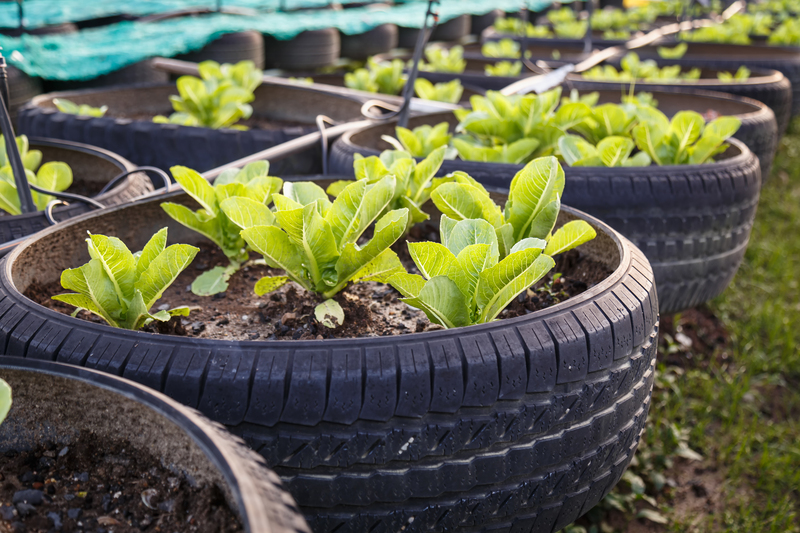Innovative Recycling Techniques for Waste Management
Posted on 10/09/2024
Waste management has become a pressing issue in today's world, with landfills overflowing and the environment suffering from the adverse effects of our garbage. As responsible citizens, it is our duty to find sustainable solutions for this problem and one of the most effective ways to do so is through recycling. While traditional recycling methods have been around for decades, innovative techniques have emerged in recent years that are revolutionizing waste management. In this article, we will explore some of these techniques and how they contribute to creating a more sustainable future.
Advanced Sorting Technologies
Sorting waste for recycling can be a tedious and time-consuming process. However, with the advent of advanced sorting technologies such as optical sorters and AI-based sensors, this task has become more efficient and accurate. These technologies use sensors and cameras to quickly sort through different types of waste materials, making the recycling process faster and more cost-effective.
Moreover, these technologies have also made it possible to sort out smaller items such as plastic bottle caps or paper clips, which previously were not considered recyclable due to their size. This allows for a higher percentage of waste to be recycled and reduces the amount that ends up in landfills.

Chemical Recycling
Chemical recycling is an innovative technique that breaks down plastic waste into its original building blocks or monomers. These monomers can then be used to create new plastic products without losing any material quality. Unlike traditional mechanical recycling, chemical recycling can handle all types of plastic waste, including contaminated or mixed plastics.
This method has proven to be highly successful in tackling the growing issue of plastic pollution. It not only reduces the amount of plastic going to landfills but also decreases the production of new plastic, thereby reducing carbon emissions from manufacturing processes.
Biodegradable Plastics
While chemical recycling is a significant step towards reducing plastic pollution, another innovative approach is the use of biodegradable plastics. These plastics are made from natural materials such as corn starch and break down into non-toxic substances when exposed to environmental conditions.
Biodegradable plastics have the potential to significantly reduce our carbon footprint and combat plastic pollution. However, proper implementation and disposal methods are necessary for these products to have a positive impact on waste management.
Pros and Cons
The use of innovative recycling techniques undoubtedly has numerous benefits, such as reducing waste, preserving natural resources, and decreasing carbon emissions. It also creates job opportunities in the recycling industry and encourages a more circular economy.
However, there are some concerns about the cost-effectiveness of these technologies and their accessibility in developing countries. Also, with the growing demand for recycled materials, there is a risk of compromising on quality standards. Therefore, it is crucial to invest in proper research and development to ensure that these techniques are sustainable in the long run.
Tips for Effective Recycling
While innovative recycling techniques play a significant role in waste management, individuals can also make a difference by practicing effective recycling habits. Here are some tips to keep in mind:
1. Educate yourself on what items can be recycled and how to prepare them for recycling.
2. Reduce your consumption of single-use products and opt for reusable alternatives.
3. Properly sort out your recyclables to avoid contamination.
4. Support companies that use recycled materials in their products.
5. Spread awareness about recycling among your friends and family.

Takeaways
Innovative recycling techniques not only address the issue of waste management but also contribute towards creating a more sustainable future by reducing our carbon footprint and protecting our environment. While these technologies continue to evolve, we should also take individual responsibility for managing our waste effectively.
Conclusion
As we move towards a more circular economy, it is essential to explore and implement innovative recycling techniques for effective waste management. It is a collective effort that requires the collaboration of individuals, governments, and industries. By embracing these techniques and incorporating them into our daily lives, we can create a cleaner and greener planet for future generations. Let us strive towards a sustainable future by making recycling a top priority.





